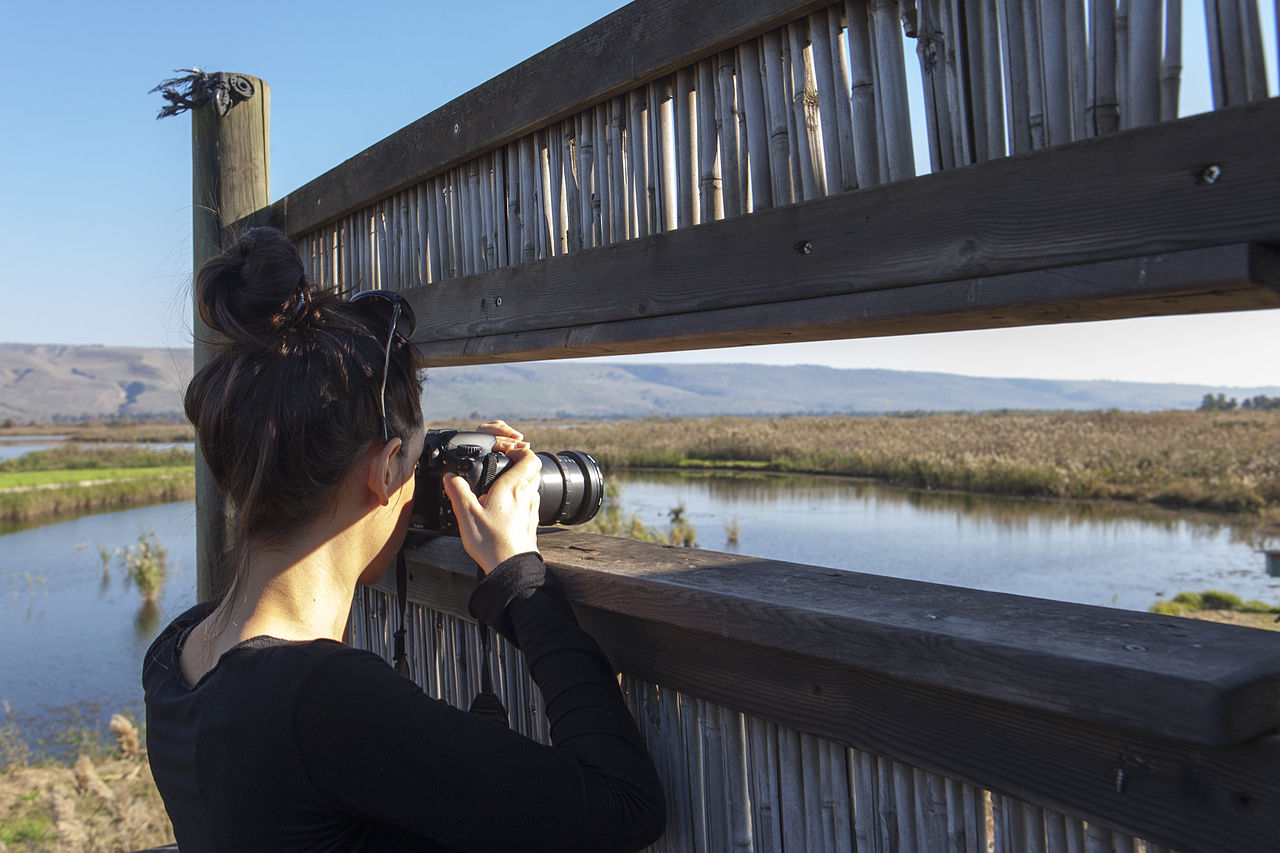Song: Ha-Kol Patuach
26 November 2016
Today we are reading the text of the song Ha-kol patuach "Everything is open" by Naomi Shemer.
Below is the text of the song, line by line, with vowel markings, transcription and translation. If you want to practice reading without the nikkud, see the song's lyrics on Shironet.
In Hebrew, the word for a couplet, or stanza, of a song is bayit – the same word that means "house". So, bayit alef goes:
The direct object preposition and the definite article, et ha-, since they go so often together, are often merged to ta- in informal speech. The name of the lake Kinneret, or the Sea of Galilee, is used with the definite article in Hebrew – as also are the names of rivers and some mountains. So we get ra'iti et ha-Kineret = ta-Kineret.
Note also that zoheret, a form of ~ לזהור lizhor, is used here as a participle.
The word etzem "essence, substance", when used with pronominal endings, means "-self": atzmi "myself", atzmecha "yourself", atzma(h) "herself" etc.
The next verse goes:
shif'a literally means "abundance, large quantity"; a more commonly used synonym is shefa. ~ לנהור linhor "to flow" is related to nahar "river".
Since the last two lines of each verse () are the same, we won't repeat them.
The pizmon "chorus, refrain" is as follows:
matzav ha-ruach, lit. "state of the spirit" means "mood".
Here is bayit bet:
No specific comments here. Here are some photos of the places mentioned in the verse:

Afula (by Deror_avi, Wikipedia)

Eilat (by Tango7000, Wikipedia])

Hula (Chula) Valley Reserve (by Itamar Grinberg)
And finally, here is bayit gimel:
~ לגלוש liglosh means "to glide; to ski". In the spoken language, you are more likely to hear la'asot ski instead. Note also the article before the name of Mount Hermon - gives ba-Chermon, literally "in the Hermon".

Mount Hermon ski resort (by Noaa, Wikipedia)
The names of most other mountains are also preceded by , for example: ha-Everest, ha-Karmel "Mount Carmel".
taf is a collective word for "little children", mostly used in poetic / literary language. Note that the before is vocalised with kamatz: va-taf, not ve-taf as might be expected. A kamatz sometimes comes in when the word begins with a stressed syllable (or has only one syllable). In modern language, this happens only in certain set expressions. anashim ve-nashim va-taf "men, women and children; all people" is one of such expressions; it occurs in Jeremiah 40:7.
The last verse ulai ha-kol patuach... basically repeats the chorus, so we will skip it here.
The photo of Lake Kinneret on top of this page is by Yulia Kuprina from Wikipedia.
Here you can watch the song being performed by Ofer Levi and Lea Lopatin:
If you have any comments / questions, please do not hesitate to comment!
See also
Word of the day: לבחון – to test